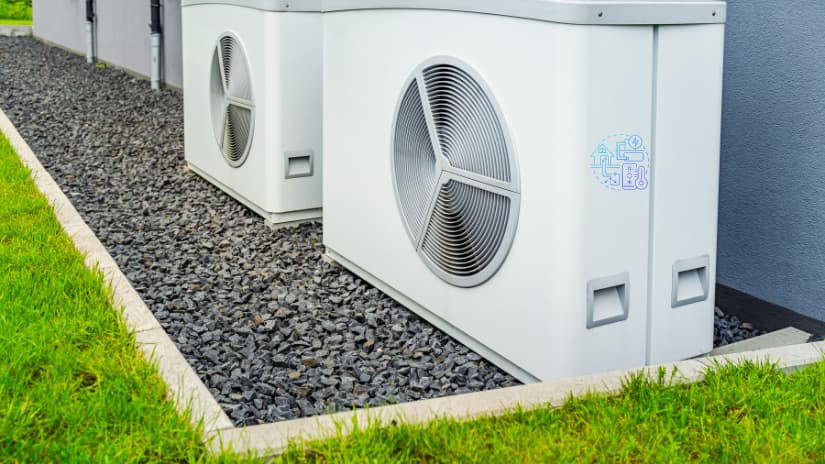
Heat pumps are emerging as a pivotal technology in the UK’s strategy to decarbonise home heating and reduce greenhouse gas emissions, which account for 18% of the national total. Despite government incentives, the adoption of this technology has not met expectations. This article provides an overview of the current landscape for heat pumps in the UK, including government schemes, installation costs, market dynamics, and future projections.
The Boiler Upgrade Scheme (BUS)
The UK Government introduced the Boiler Upgrade Scheme (BUS) to encourage the adoption of heat pumps. This initiative offers grants of up to £7,500 to households installing air or ground source heat pumps. Despite an increase in the funding from £5,000 to £7,500 in October 2023, uptake has been lower than anticipated. In 2023/24, £88.8 million was allocated through the scheme, well below the £150 million budgeted. This shortfall suggests that even with financial support, the high upfront costs of heat pumps remain a significant barrier for many homeowners.
The Cost Challenge
The average installation cost of a heat pump under the BUS is £13,300. With a maximum grant of £7,500, homeowners still face considerable expenses. Mike Foster, CEO of the Energy and Utilities Alliance, points out that the substantial remaining cost is a significant deterrent, as few people have the financial flexibility to prioritise this investment over other potential uses of their funds.
Market Response and Price Dynamics
Following the grant increase, applications for heat pump installations surged by 52% in November 2023 compared to the previous year, with sustained interest in subsequent months. However, industry leaders like Foster argue that there are natural limits to how much the price of heat pumps can decrease. This is due to the global market, with a slight cost variance across Europe. The potential for reducing installation costs exists, but this depends mainly on increasing the efficiency of the installation process.
Government Projections and Criticisms
The National Audit Office (NAO) has criticised the government’s approach, highlighting the slow progress and lack of a long-term strategy to meet the ambitious target of installing 600,000 heat pumps annually by 2028. Current installations are less than half the planned number, with only 18,900 heat pumps installed from May 2022 to December 2023. The NAO urges the government to leverage its experience to overcome barriers and accelerate progress.
Legislative and Policy Changes
Recent decisions to relax requirements, such as the need for cavity wall or loft insulation to qualify for grants, aim to boost adoption rates. The government is also increasing public awareness through media campaigns and has committed significant funding to train heat pump installers. Despite these efforts, challenges remain, including the delayed implementation of the Clean Heat Market Mechanism, which is crucial for driving sales through penalties on boiler manufacturers.
In conclusion, the UK’s transition to low-carbon home heating is critical for meeting climate targets, but the journey is complex and challenging. While government incentives like the Boiler Upgrade Scheme are pivotal, their effectiveness is hampered by high costs and slow market adaptation. Continued governmental commitment to funding, policy adjustments, and public engagement is essential. For potential buyers and industry stakeholders, staying informed about developments and available support is crucial as the sector evolves.
Related Articles
- Heating Up the Future with Low Carbon Solutions for New Build Homes
- Insight and Trends on The Future of Home Energy Efficiency
- New Onshore Wind and Solar Sites Identified
- Navigating the Renewable Energy Transition for Grid Operators
- First Dedicated Heat Pump Apprenticeship Launched

